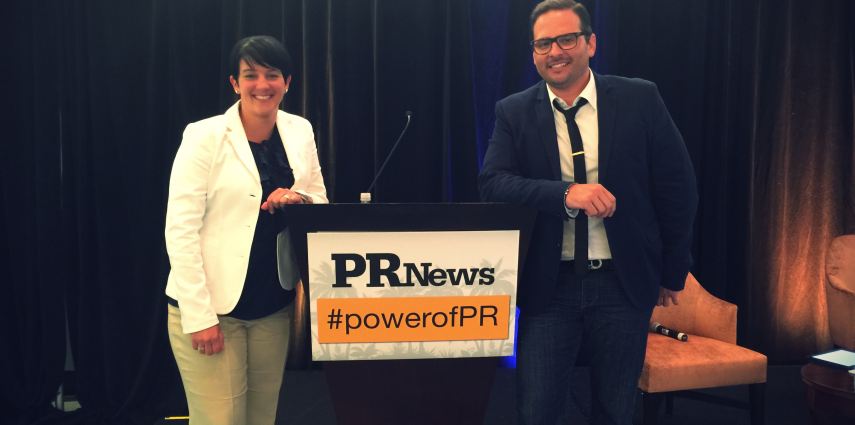RockOrange Managing Partner and Principal, Miguel Piedra, co-hosted an interactive clinic titled ‘How to Manage an Escalating Crisis in Real Time’ at the PR News’ Digital PR Conference. The conference brought more than 700 public relations professionals from across the country and different industries to South Beach, Miami in early June.
Miguel along with Cynthia Martinez, director of global corporate communications for Royal Caribbean Cruises provided an overview of crisis situations they managed. News goes viral in a matter of minutes, and how a company handles a crisis may determine their long-term business survival.
Miguel has been handling crises for a variety of clients throughout his career, but even though these clients have differed in their fields, the same key ingredients have been at the core of managing each occurrence.
Crisis management goes beyond issuing a statement and going on a major broadcast network. Miguel provided five key takeaways that are essential in a crisis management plan.
1. Have the Right People, Right Setup
At the start of a crisis, the organization needs to create a dedicated crisis team comprised of a multi-disciplined taskforce — from operations, to social media, to communications — to address the problem from every angle. In this taskforce, you establish who the leader is and create separate workstreams.
2. Be Transparent
When managing a crisis, it is important to give the company a face — for example, have the CEO take responsibility publicly. What stakeholders want at this time is accountability from the person who will solve it. Don’t blame others. You will also need to apologize — sometimes even more than you think you need to. And more importantly, you need to provide tangible actions and solutions.
3. Be Authentic
It’s important to tell the brand story and provide experience to emphasize the brand messages. This builds equity and insulates you when crisis occurs.
In addition, you must provide faces and stories. Deal with the issue head-on. You need to be real and honest — no phrases, no bare figures.
4. Be Fast
In crisis communications, it’s critical to decide on activities fast. You have to decide on activities quickly and put out statements within hours, not days. However, you can issue a holding statement until you know all the details and facts. Don’t hurry to issue a statement without all the information. The long-term success of your brand will be determined how well you fulfill promises you make.
5. Address the Real Issue
You need to be brutally honest with yourself and define exactly what is the root of the problem and address it. It’s simple: don’t focus on who is to blame, focus on the solution. Acknowledging and proactively owning up to it is a step in the right direction.
Iconic brands have survived corporate crises and lived to tell the tale, but there are far too many brands that have failed to recover from these types of crises due to failures of leadership, communication, awareness, or all of the above. You have the right ingredients to handle the unthinkable — now it’s up to you to use them well and get your client to fight another day.

